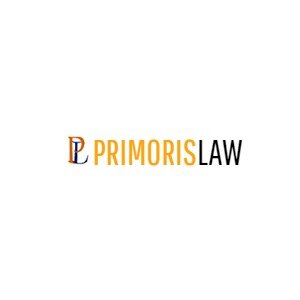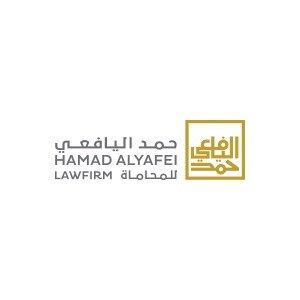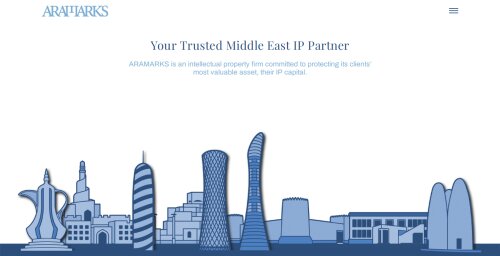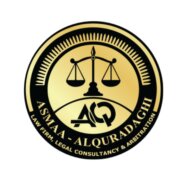Best Landlord & Tenant Lawyers in Qatar
Share your needs with us, get contacted by law firms.
Free. Takes 2 min.
Free Guide to Hiring a Real Estate Lawyer
Or refine your search by selecting a city:
List of the best lawyers in Qatar
About Landlord & Tenant Law in Qatar
The Landlord & Tenant Law in Qatar is primarily governed by Law No. 4 of 2008 Regulating the Leasing of Real Estate. It provides a framework for the legal relationship between landlords and tenants, ensuring fair terms and the protection of both parties' rights. This law covers various aspects including lease agreements, rent control, maintenance responsibilities, and the resolution of disputes. In Qatar, the legal system places emphasis on ensuring transparency and fairness, striving to maintain balance in the rental market.
Why You May Need a Lawyer
Legal assistance can be crucial in a variety of situations related to landlord and tenant matters. Common scenarios include:
- Lease Disputes: When conflicts arise over the terms of a lease agreement or when a party fails to uphold their contractual obligations.
- Evictions: Navigating the legal process of eviction can be complex, requiring a lawyer to ensure it is done in compliance with local laws.
- Rent Increases: Legal advice may be needed when there is a dispute over rent hikes, especially if they are perceived as unfair or not in line with the lease agreement.
- Lease Termination: If a landlord or tenant wishes to terminate a lease early, understanding the legal ramifications and proper procedures is essential.
- Property Maintenance and Repairs: Disagreements over the maintenance and repair responsibilities can require legal intervention.
Local Laws Overview
Key aspects of Qatar's landlord and tenant laws include:
- Lease Agreements: All leases should be in writing and clearly outline the terms, duration, and conditions agreed upon by both parties.
- Rent Control: Law No. 4 of 2008 regulates how and when rent can be increased, providing protection against arbitrary hikes.
- Security Deposits: The laws stipulate how security deposits are to be handled and returned at the end of the tenancy.
- Tenant Rights: Tenants have the right to a habitable living environment and cannot be evicted without proper legal process.
- Dispute Resolution: The Rental Disputes Settlement Committee handles disputes, aiming for a fair and rapid resolution.
Frequently Asked Questions
What is the standard duration for a lease agreement in Qatar?
Most lease agreements in Qatar are for one year, but this can be negotiated between the landlord and tenant.
Can a landlord increase the rent during the lease term?
No, the rent cannot be increased during the term of a lease, unless there is a specific provision in the agreement allowing for such an increase.
What should I do if my landlord is not carrying out necessary repairs?
You should notify your landlord in writing about the repairs needed. If they do not respond, you may take legal action or contact the Rental Disputes Settlement Committee.
Is the tenant responsible for maintenance in Qatar?
Tenants are usually responsible for minor maintenance, while landlords are responsible for major repairs unless otherwise specified in the lease.
How can a lease agreement be legally terminated?
A lease can be terminated according to the terms stated in the agreement, or through mutual consent between the tenant and landlord. Legal advice can help ensure compliance with the law.
Do I need to register my lease agreement?
Yes, leases should be registered with the competent authorities, such as the Ministry of Municipality and Environment.
Can a landlord evict a tenant without notice?
No, evictions must follow legal procedures and typically require notice to be given to the tenant.
What happens to my security deposit when I move out?
The security deposit should be returned to the tenant after deductions for any damages beyond normal wear and tear, if applicable.
How are rental disputes handled in Qatar?
The Rental Disputes Settlement Committee is responsible for resolving disputes regarding rent or lease agreements.
Can I sublet my apartment in Qatar?
Subletting is typically subject to the landlord's approval and must be specified in the lease agreement.
Additional Resources
For more information and assistance, consider reaching out to the following resources:
- Rental Disputes Settlement Committee: Handles disputes and provides resolutions between landlords and tenants.
- Ministry of Municipality and Environment: Responsible for registering lease agreements and overseeing regulatory compliance.
- Legal Firms Specializing in Property Law: Professional legal assistance can be invaluable for personalized advice.
Next Steps
If you are seeking legal assistance in landlord and tenant matters in Qatar, consider the following steps:
- Identify the specific issue or concern you are facing with your rental situation.
- Gather all relevant documents, including the lease agreement and any correspondence with your landlord or tenant.
- Consult with a qualified legal professional who specializes in property law to discuss your case and explore your options.
- Engage with the Rental Disputes Settlement Committee if you believe your case warrants formal intervention.
- Stay informed about your rights and responsibilities under Qatari law to better navigate any legal challenges.
Lawzana helps you find the best lawyers and law firms in Qatar through a curated and pre-screened list of qualified legal professionals. Our platform offers rankings and detailed profiles of attorneys and law firms, allowing you to compare based on practice areas, including Landlord & Tenant, experience, and client feedback.
Each profile includes a description of the firm's areas of practice, client reviews, team members and partners, year of establishment, spoken languages, office locations, contact information, social media presence, and any published articles or resources. Most firms on our platform speak English and are experienced in both local and international legal matters.
Get a quote from top-rated law firms in Qatar — quickly, securely, and without unnecessary hassle.
Disclaimer:
The information provided on this page is for general informational purposes only and does not constitute legal advice. While we strive to ensure the accuracy and relevance of the content, legal information may change over time, and interpretations of the law can vary. You should always consult with a qualified legal professional for advice specific to your situation.
We disclaim all liability for actions taken or not taken based on the content of this page. If you believe any information is incorrect or outdated, please contact us, and we will review and update it where appropriate.
Browse landlord & tenant law firms by city in Qatar
Refine your search by selecting a city.

















